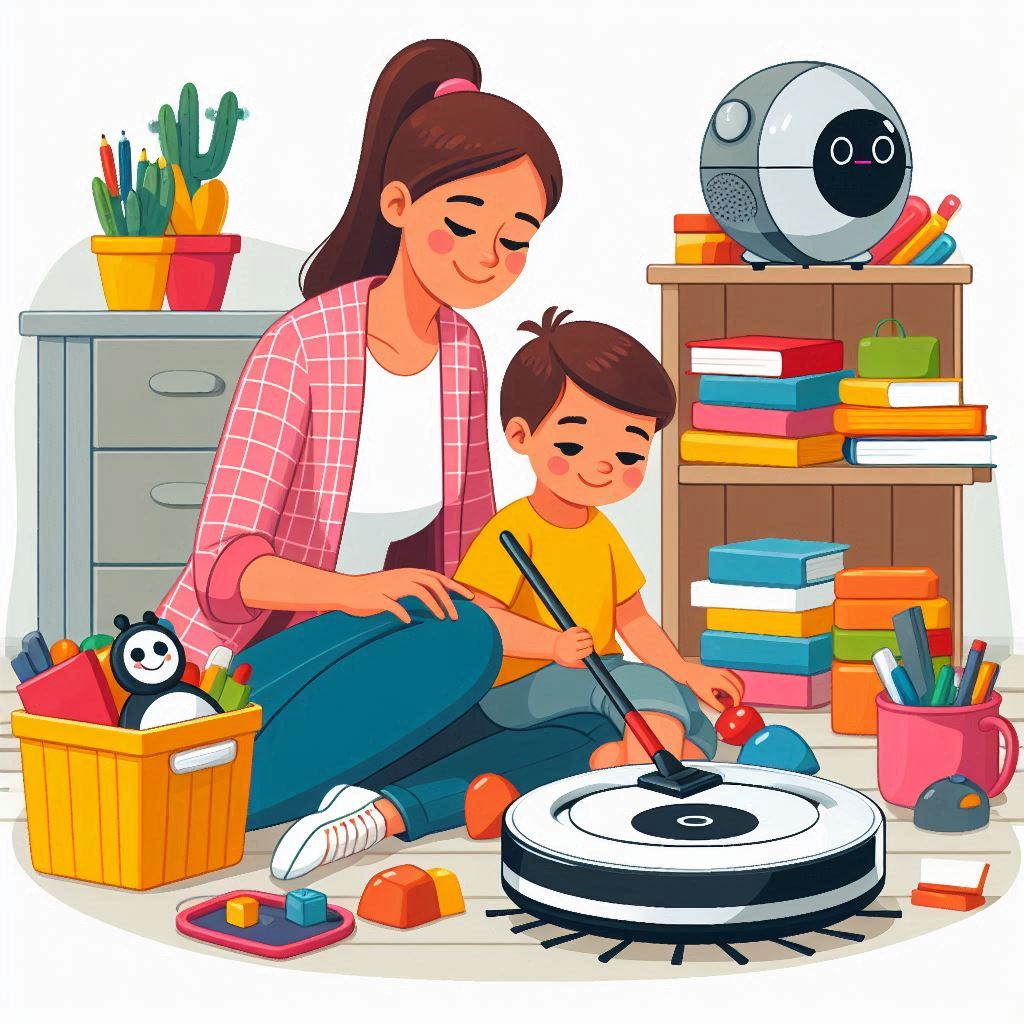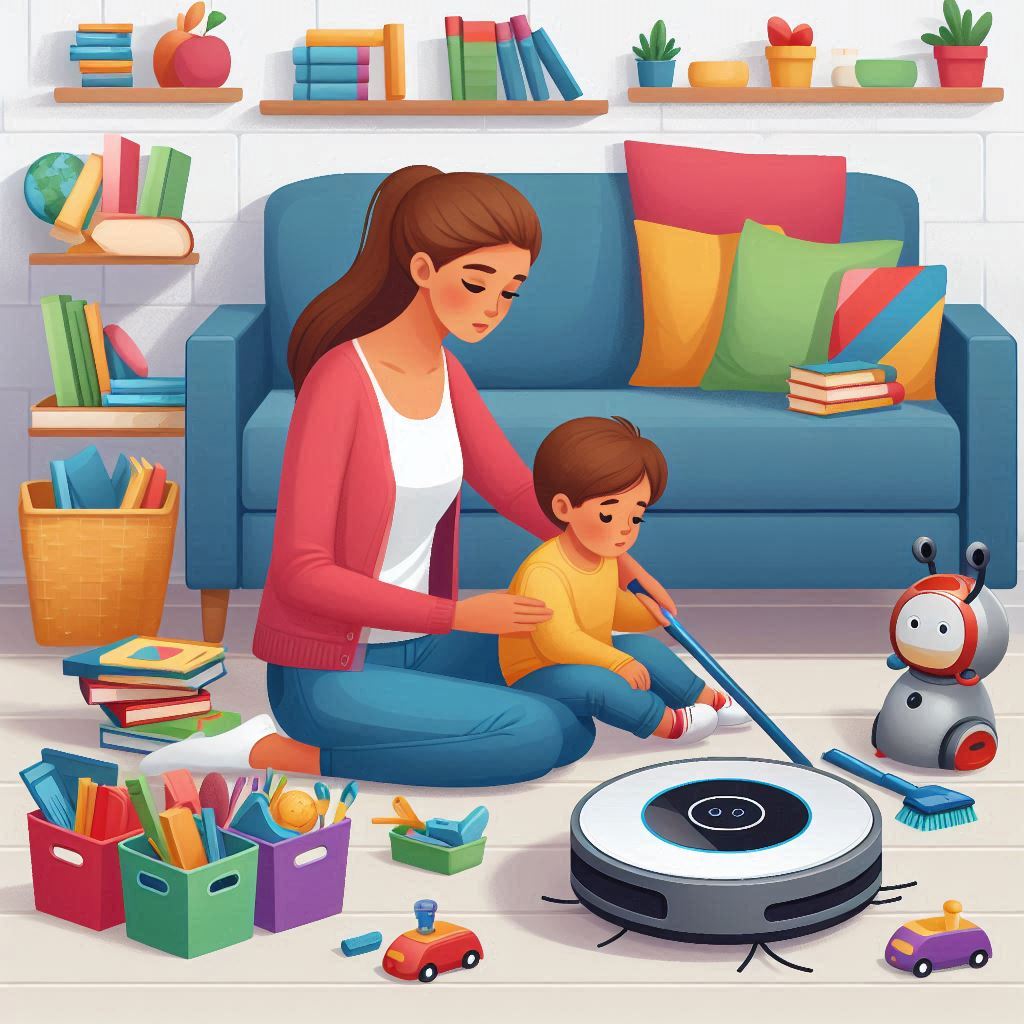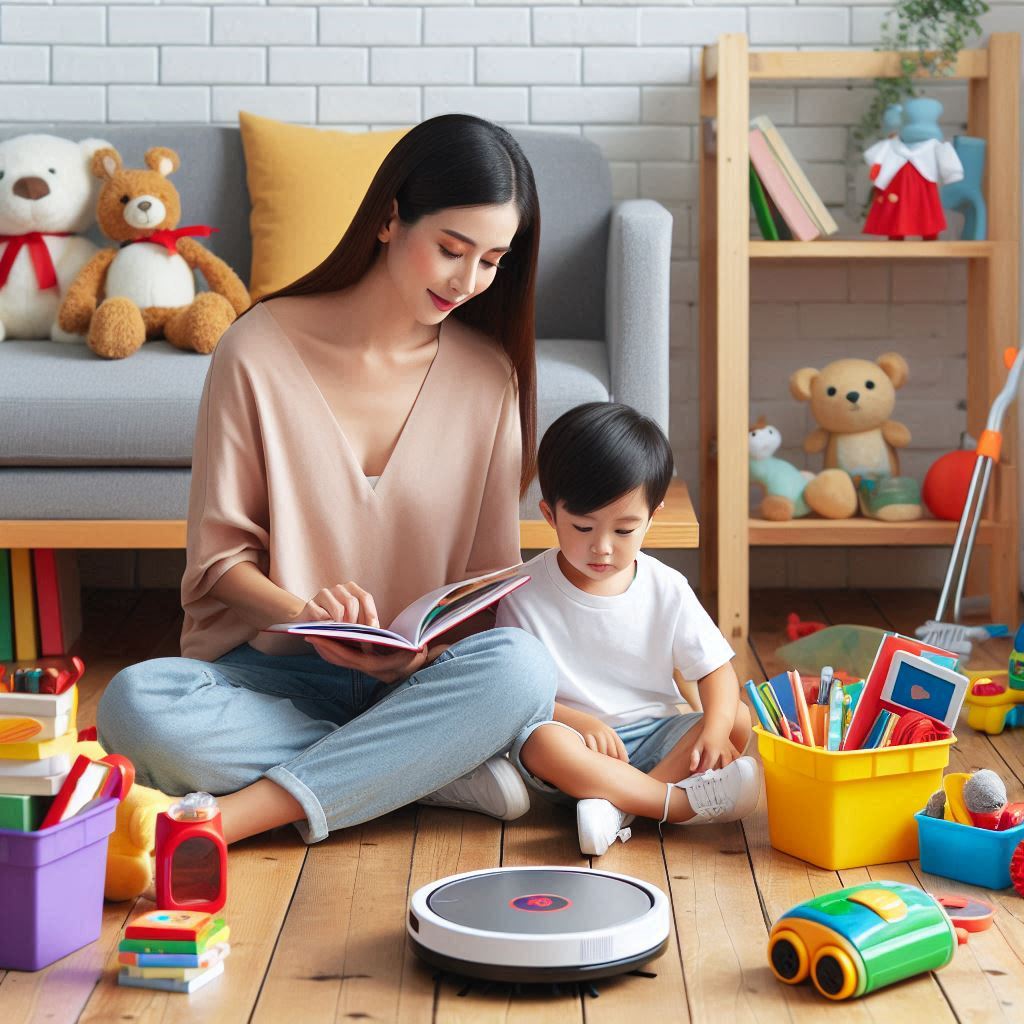Getting a child to clean their room can feel like an uphill battle for many parents. Despite reminders, requests, and even rewards, the room often remains a cluttered space. Yet, the need for a tidy environment is not only about keeping the house in order but also about teaching responsibility and self-discipline. The key to success lies not in forcing a child to clean but in inspiring them to want to clean.
This article explores various methods rooted in psychology and practical experience to encourage children to clean their room willingly and even enjoy the process. By using age-appropriate strategies, fostering a sense of ownership, and making the task of cleaning fun and manageable, parents can help children develop habits that last a lifetime.
1. Understanding a Child’s Perspective
Before diving into techniques, it’s essential to consider the child’s perspective. A cluttered room might seem overwhelming, and the task of cleaning it might feel enormous. For a child, a messy room doesn’t hold the same significance it might for an adult. They don’t view the mess as a problem but as a natural state of their living space. Children also often prioritize play and activities they find exciting over chores.
In psychology, this is referred to as selective attention—children naturally focus more on tasks they enjoy and block out those they don’t. When adults can view the situation from the child’s perspective, it becomes easier to understand their reluctance and develop better strategies to encourage them.
2. Start by Setting an Example
Children, especially young ones, learn primarily by observing the behavior of their parents. If you maintain a clean, organized living space and take pride in doing so, your child is more likely to mirror this behavior. Lead by example by showing them that cleaning can be a natural part of daily life. For instance, make tidying up your living space part of your routine, and let your child see you enjoying the process.
If your child sees cleaning as something adults avoid or view as a burden, they will likely pick up on those negative emotions. Instead, if they see you cleaning with a positive attitude and satisfaction in the result, they will be more inclined to mimic your behavior.

3. Break Down the Task
Cleaning an entire room can be overwhelming for a child, especially if the space is significantly messy. A key psychological principle to combat overwhelm is chunking, which involves breaking down a large task into smaller, manageable parts.
For example, instead of asking the child to “clean their room,” ask them to:
- Pick up all the toys and put them in a basket.
- Fold the clothes and put them away.
- Put books back on the shelf.
By breaking the task into smaller steps, the child can experience small victories along the way, which can motivate them to continue. It also makes the cleaning process less daunting. Once they see the progress they’ve made, they are more likely to want to finish.
4. Incorporate Playfulness into Cleaning
One of the most effective ways to motivate a child to clean is by turning it into a game. Children are naturally inclined to play, and if the process of tidying up is made fun, they are more likely to engage with it. Here are a few creative ways to turn cleaning into play:
- Time Challenges: Use a timer to challenge your child to see how fast they can complete specific tasks, such as picking up toys or making the bed. Reward them if they beat their previous time or if they finish before the timer runs out.
- Treasure Hunt: Hide small rewards or notes under certain objects, and as your child cleans, they “discover” these treasures. This not only adds excitement to cleaning but gives them something to look forward to.
- Music Motivation: Play your child’s favorite music while they clean. Let them sing and dance as they tidy up. Associating cleaning with fun music can turn a boring task into an enjoyable one.
By framing cleaning as an enjoyable activity, you align their motivation with the task at hand. Children are much more likely to engage in an activity that feels like play rather than a chore.
5. Offer Choices to Foster Responsibility
Giving a child choices is an excellent way to foster a sense of control and responsibility. Instead of demanding that they clean their room in a specific way, offer options that allow them to take ownership of the task. For example, you can say, “Would you like to start with picking up your clothes or putting away your toys?” By giving them a choice, they feel more in control of the situation and are more likely to cooperate.
In psychology, this strategy ties into the concept of autonomy. Children, like adults, are more motivated when they feel they have control over their actions. Offering choices within the task of cleaning empowers them and reduces resistance.
6. Set Clear Expectations and Create a Routine
Children thrive on consistency and clear expectations. Creating a regular cleaning routine can help make the task a habit rather than something that feels like a one-time burden. Establish specific times when cleaning is expected, such as before bedtime or on the weekends. The more predictable the routine, the easier it will be for the child to anticipate and prepare for cleaning.
Along with routine, it’s essential to set clear expectations. Be explicit about what “clean” means in your household. Does it mean no toys on the floor, or does it also include dusting and vacuuming? When children know exactly what is expected of them, they’re less likely to resist.

7. Use Positive Reinforcement
Positive reinforcement is one of the most effective methods of shaping behavior. Praise your child when they clean their room or make progress in keeping their space tidy. Recognition, even for small achievements, can go a long way in reinforcing positive behavior. You can say things like:
- “I’m so proud of how well you cleaned up your toys today!”
- “Your room looks great! You did such a good job organizing everything.”
It’s essential that the praise is specific, focusing on what they did well, rather than a vague, “Good job.” When children receive specific praise, they understand what behavior is being rewarded and are more likely to repeat it.
Some parents also find it helpful to create a reward system. For example, for every week the child keeps their room clean, they earn points that can be traded for a treat or privilege, like extra screen time or a special outing. However, it’s important that rewards don’t become the sole motivation for cleaning, as this can reduce intrinsic motivation over time. The goal is to create lasting habits, not just short-term compliance.
8. Teach Organizational Skills
Often, children struggle with cleaning because they don’t know how to organize their belongings. Teaching your child how to categorize items and put them in designated places is a crucial part of making cleaning easier and less stressful. For instance, provide bins for toys, a hamper for clothes, and a shelf for books. Label these spaces if necessary, so they know where everything belongs.
When everything has a place, cleaning becomes less of a guessing game for the child. They know exactly where to put things, which reduces the frustration they may feel during the process.
9. Make Cleaning Part of Their Responsibility
As children grow, they should understand that maintaining their personal space is part of their responsibility. By involving them in the process of setting cleaning goals, you can encourage a sense of ownership over their room. For instance, you can work together to set rules about how often the room should be cleaned and what tasks need to be done.
You can frame the conversation around how a clean room benefits them, such as:
- It’s easier to find their favorite toys or clothes.
- They have more space to play.
- It feels nicer to sleep in a tidy room.
When children see the direct benefits of keeping their room clean, they’re more likely to take the responsibility seriously.
10. Address Emotional Resistance
Sometimes, a child’s reluctance to clean their room might stem from emotional reasons. If a child is struggling with stress, anxiety, or other emotional challenges, cleaning might feel even more overwhelming. In such cases, it’s crucial to address the underlying emotions before focusing on the task.
One approach is to sit down and talk to the child about how they feel. Ask them if they’re feeling upset or overwhelmed by the idea of cleaning, and offer support and encouragement. Let them know that it’s okay to feel overwhelmed sometimes and that you’re there to help them manage their feelings and the task.
Sometimes, offering to help them get started can make a big difference. For example, you could say, “Let’s clean for five minutes together, and then you can take over.” This provides emotional support while still encouraging independence.
11. Celebrate a Job Well Done
When your child successfully cleans their room, take a moment to celebrate their accomplishment. Recognize their hard work and let them enjoy the satisfaction of a tidy space. You can make this a small event by spending time with them in the clean room, playing together, or reading a book as a reward for their effort.
By celebrating the result, you help your child associate positive feelings with a clean room, making them more likely to want to keep it tidy in the future.

So, Child to Clean Their RoomEncouraging a child to clean their room doesn’t have to be a struggle. By understanding their perspective, breaking the task into smaller steps, incorporating fun, and providing clear expectations, parents can help their children develop the habit of keeping their space tidy. It’s essential to use positive reinforcement, offer choices, and create a routine to build long-lasting habits.
Above all, cleaning should be framed as a skill that benefits the child, not just a chore that needs to be completed. When children feel empowered and supported, they’re more likely to take pride in maintaining their personal space. With patience, encouragement, and a bit of creativity, parents can make cleaning a positive and rewarding experience for their children.
